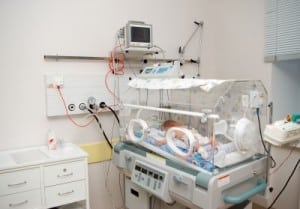
Most research based on preemies is often related to those born in the 23 and 28 weeks of pregnancy. But the present researchers believe that as much brain development occurs in the last four to six weeks of pregnancy, this coupled with the usual complications associated with preterm births may result in developmental as well as academic problems.
Study researchers led by Jennifer E. McGowan, of the School of Nursing and Midwifery at Queen’s University Belfast in Belfast, U.K. says,
“Although late preterm infants were previously considered similar to term infants, emerging evidence suggests that significant adverse developmental outcomes among late preterm infants, which further indicates that longer-term outcomes of prematurity, remain a concern even for those infants born at the more optimistic late-preterm stages of pregnancy,”
As a conclusion from the research it can also be interpreted that the closer the birth takes place to full term of pregnancy, lower is the risk to the infant. Late preterm births are better than early preterm births but they too have developmental risks.
The research was based on the analysis of 10 earlier researches concentrating on early childhood development of babies born between 34 and 36 weeks. These babies showed risk of development delays, scored lower in standard academic tests and were also at a risk of being underweight, and shorter than babies born full term. The researchers also said that they needed earlier intervention than others to help them with their developmental and academic needs.
“In the past, only very, very tiny preterm babies were believed to be at risk for problems later in life,” says Shoo Lee, MD, the chief of pediatrics at Mount Sinai Hospital in Toronto. “And we are realizing that this is not true and that all preterm babies including those born between weeks 34 to 36 are at risk.”
The doctor finds the research worrisome because of the growing trend of fertility treatments that more often than not lead to early deliveries.
“There are consequences to delivering early,” he says.”These babies are vulnerable and moms should be on the lookout for signs of delay,”
Some signs to look out for according to the doctor are inattentiveness, excessive crying, and difficulty forming relationships.
“There is a range of normal and if the mother finds that a baby not doing well, it doesn’t mean that it is abnormal, just that it may need to be evaluated,” he says.
Mark Batshaw, MD, chief academic officer at Children’s National Medical Center in Washington, D.C says,
“The more premature you are, the more at risk you will be for problems. Some thought that if you made it to 34 weeks, things will be OK, but this study says ‘we don’t know,” he says. “Babies were meant to stay inside for 40 weeks, and if it is less than that, they are at greater risk for problems.”
He says it is important for parents to keep looking for the signs in their child and help them.
“If the child is lagging in development, they should be referred for early intervention as soon as possible,” he says. “Every well-baby checkup should involve a developmental screening to see if the child is starting to lag and if that lag is seen on two successive evaluations, a referral for formal testing and evaluation may be warranted.”
The study definitely proves that each day a baby spends in his mother’s womb is precious and important for their overall development.
- Pennsylvania Couple Welcomes Sextuplets!
- Mom Gives Birth to Baby Carried Outside her Womb
- UK Researchers to Develop Sensor to Help Premature Babies
- Delicate Surgery Saves Twins in their Mom’s Womb






